
Understand Why Product Source Matters
- Sourcing from a reliable supplier ensures consistent product quality, which helps reduce returns and complaints.
- The price at which you buy products directly affects the profit you make when selling. A dependable supplier will offer competitive pricing and thus, better profit margins.
- High-quality products and faster shipping directly impact your customer satisfaction and brand loyalty
Try SellerChamp for Yourself!

7 Attributes of a Good Product Supplier
- Reliability and Consistency: According to Statista, for 53% of millennials, reliability is the most wanted quality in brands. If your supplier is providing products on time and maintains consistent quality, your customers will trust you as a brand too.
- Costs: Look for suppliers that offer discounts on bulk orders or those who can work with you to bring the cost down. Conduct thorough research on all available options and discuss costs.
- Scalability: As your business grows, your product sources should be able to handle the increased demand. You can judge this by the supplier’s facilities and clientele.
- Transparency and Communication: A trustworthy supplier should be open to discussions about product features and qualities before ordering, and will address all your concerns.
- Responsive Support: A good supplier must have responsive customer service to handle issues such as order discrepancies, product defects, and delivery problems. Clear terms for returns and exchanges are a must. This is even more important for dropshipping businesses.
- Third-party Audits: Ask your supplier about third-party quality control and audits, as these are critical to protecting your business and are becoming increasingly popular.
- Industry Expertise: Make sure that your supplier has expertise in your industry and product type. This ensures that they can avoid common problems and fix issues if/when they occur.

Where to Buy Products to Sell Online
1. Online Marketplaces
i. Chinese Suppliers
- AliExpress is primarily a B2C site, however, many retailers and dropshippers use it to find products and suppliers for bulk buying.
- You can easily find sellers that offer custom labeling and packaging.
- Since there is no minimum quantity to place an order, you can try out a bunch of products/sellers and then only reach out to the ones you like.
- Alibaba is a major platform for wholesalers and operates on a B2B business model.
- With Alibaba, you can easily connect with manufacturers who offer lower prices for larger orders.
- Almost all sellers offer private labeling so you can sell their products under your brand name. Many offer product customizations too.
- While there is a minimum order quantity on Alibaba, almost all sellers offer samples and many offer free samples.
- Ensure to carefully vet suppliers and check reviews for reliability and quality.
- Try to connect with manufacturers directly instead of buying from middlemen.
ii. Amazon
- You can easily find great wholesale prices on Amazon Business to sell products in your store. 5-30% markdowns are common and you can further negotiate as well.
- There are different plans offered on the site that accommodate varying numbers of users and thus, business sizes.
- All plans cover shipping and surveys, whereas the paid plans also include spend visibility, guided buying, and easier payment terms.
- Look at Amazon’s “Best Sellers” list to identify products in high demand. You can source these products in bulk and resell them through your store.
2. Local Sources
i. Thrift Stores & Garage Sales
Tips:
- Look for high-value, branded items or rare collectibles.
- Research brands and market trends to ensure purchasing products that will sell for a higher price online.
- If your business shows success, you can reach out to suppliers of second-hand products to make the process smoother.
ii. Wholesale Suppliers & Distributors
- Look at online platforms or directories to find trustworthy suppliers, or reach out directly to local distributors who can provide the products you need. store.
iii. Trade Shows
- Attend niche-specific trade shows to find products that align with your business.
3. Private Label Manufacturers
- Private label is ideal for businesses that want more control over branding, packaging, and profit margins.
- Brands like Nike, Apple, and Kirkland Signature by Costco are some examples of private label brands.
- Start with smaller test batches to minimize risk. Once you’ve found a product that resonates with your audience, scale up production.
- Don’t be afraid to negotiate for lower prices, better terms, or customized features. The more you buy, the more room you have for negotiation.
4. Liquidation Warehouses
Liquidators are businesses that work with retailers to acquire excess stocks (closeouts and overstocks) and returned items. Liquidators partner with reputable retailers like Amazon and Target and purchase items in bulk via live liquidation auctions.
This makes going for liquidation warehouses an excellent strategy to buy products to sell online as you can get decent quality products at low prices.
Where to Source Liquidated Stock:
i. B-Stock Solutions
B-Stock connects businesses with top retailers such as Walmart, Amazon, and Target, offering liquidation auctions for overstock and returned items. You can bid on categories like electronics, apparel, and home goods.
ii. Bulk.com
Bulk.com specializes in bulk purchasing of liquidation stock. They offer a variety of conditions, from new and like-new items to salvage inventory, making them a flexible option for diverse business needs.
iii. DirectLiquidation.com
This site partners with major retailers such as Best Buy and Walmart to offer items from a wide range of categories, including refurbished electronics and apparel.
iv. Liquidation.com
A versatile platform that auctions items directly from retailers like Home Depot and Amazon. Categories include home improvement, consumer electronics, and apparel.
v. BlueLots.com
BlueLots connects resellers with high-quality surplus inventory from manufacturers and retailers, offering transparent pricing and fewer middlemen.
Tips:
- Auctions can get very lively, and you can easily go overboard with spending. It is important to clearly know the products/categories you want to purchase and to define a budget before going to the auction.
- Verify product quality before committing to purchases.
5. Specialized Dropshipping Suppliers
- Find suppliers who are well-experienced and regularly work with dropshipping businesses to ensure that you don’t run into common problems.
- Spocket, Modalyst, and Zendrop are great options for sourcing high-quality products from suppliers who handle shipping directly.
- Partner with suppliers that offer fast order processing and shipping with strict quality control to ensure a positive customer experience.
✅Pro Tips for Building an Efficient Online Store
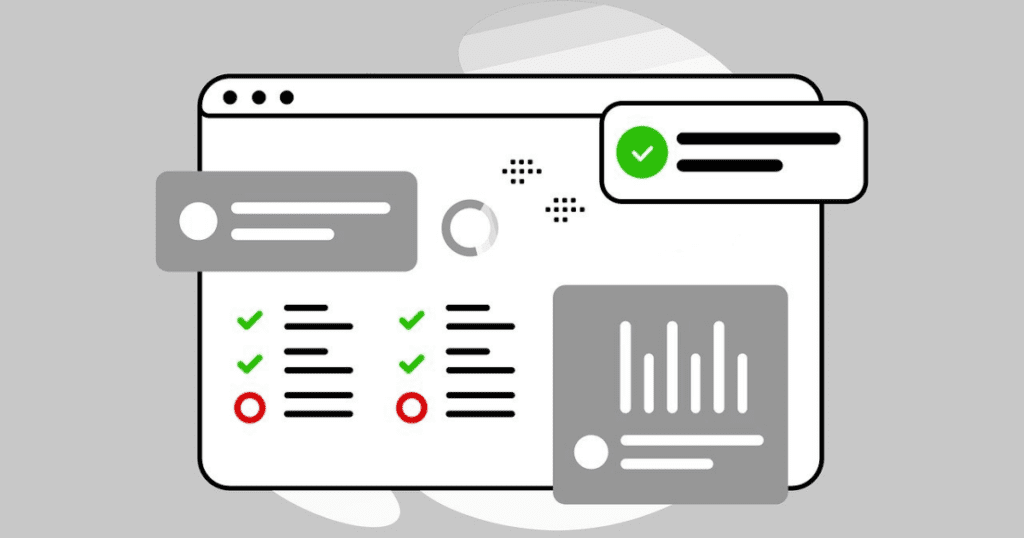
- Start small and scale with proven products.
- Focus on evergreen products for steady sales and seasonal products to capitalize on trends. Utilize our smart strategies above when sourcing products for a successful business.
- Sell on multiple channels with SellerChamp for sales across many platforms including Amazon, eBay, and 13 other marketplaces. Learn more about multi-channel sales here.
- Buying in bulk but don’t know how to manage listings on multiple channels? Check out SellerChamp’s Bulk Product Listing Tool which can list thousands of products in minutes.
- Be sure to keep a stringent check on your inventory and stock counts with SellerChamp’s Multi-Channel Inventory Sync Software. Click here to learn more about automation for inventory management.
Request a SellerChamp Demo!
Try SellerChamp for Yourself!
Schedule a demo today and discover how our Bulk Lister can help you list more products, increase sales, and grow your e-commerce business faster than ever.


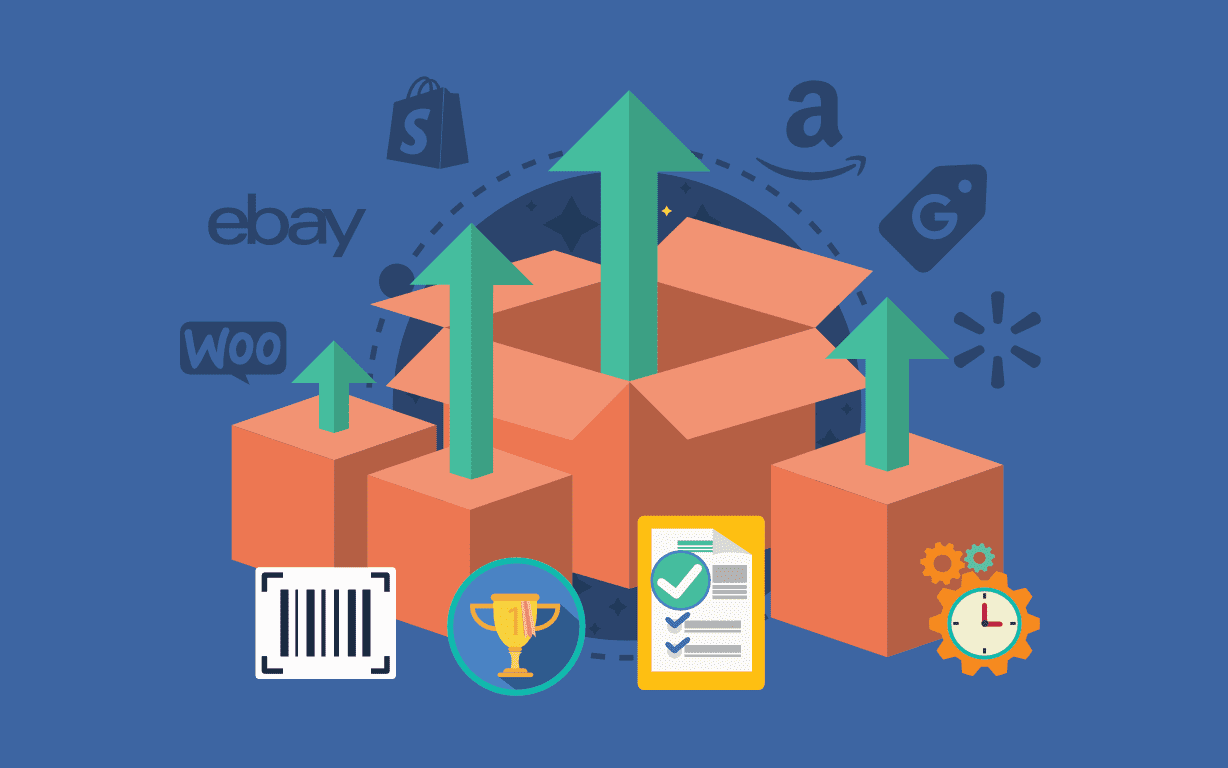
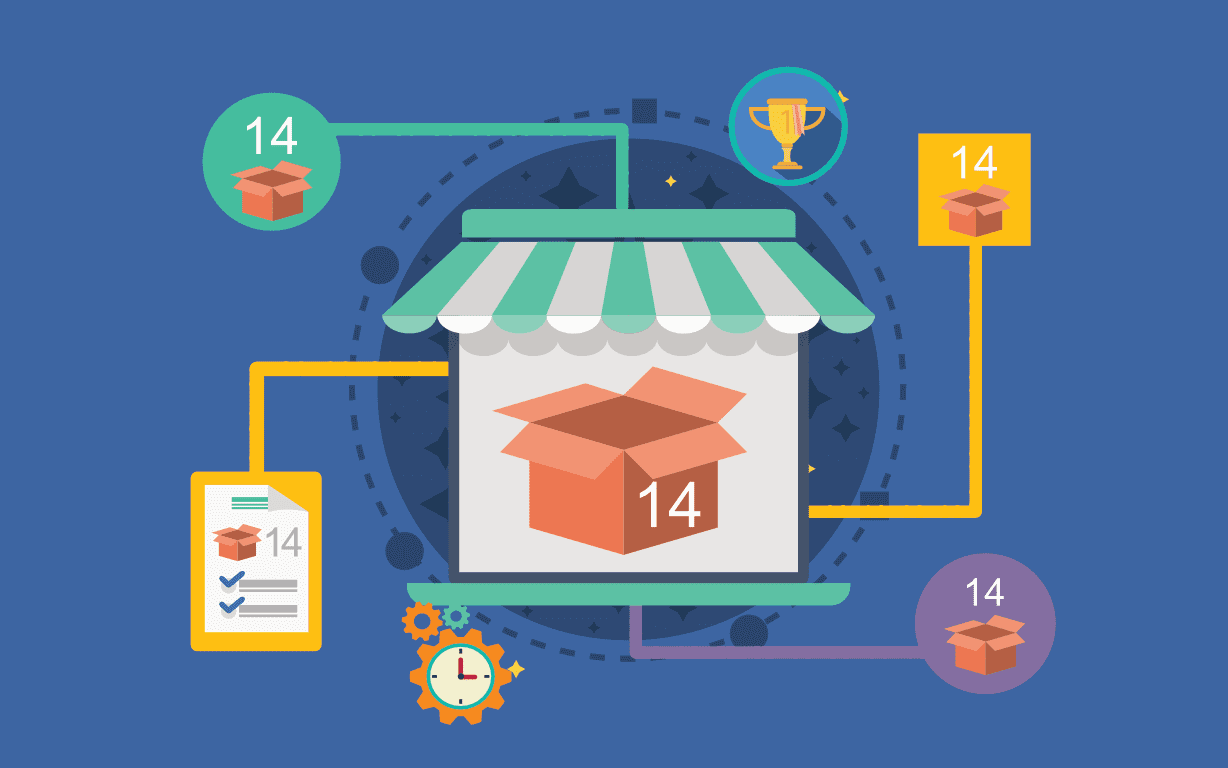
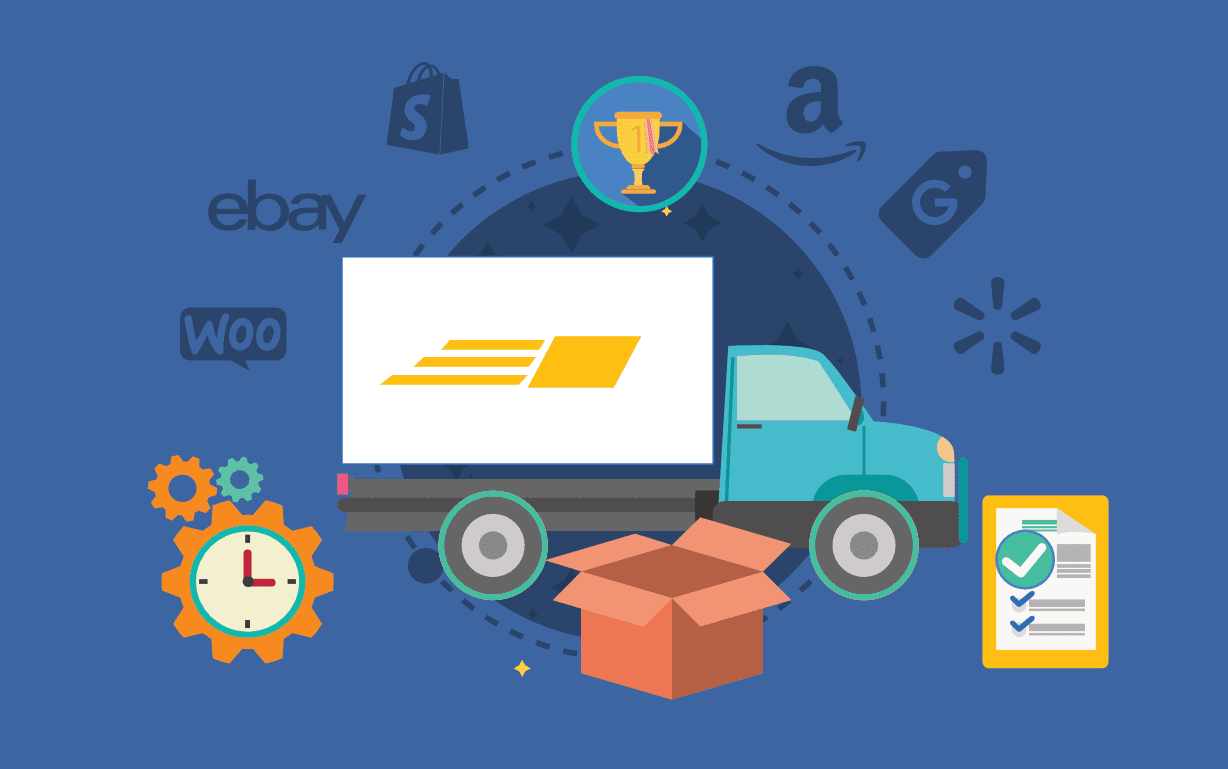
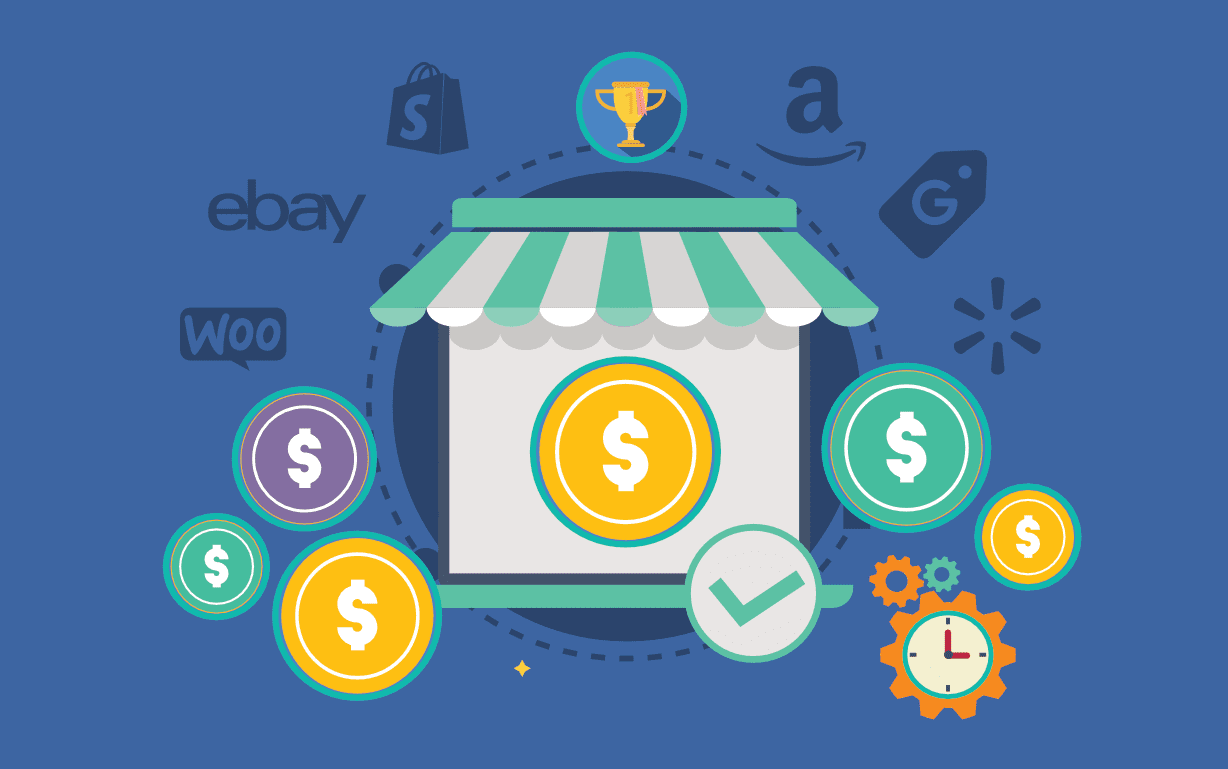
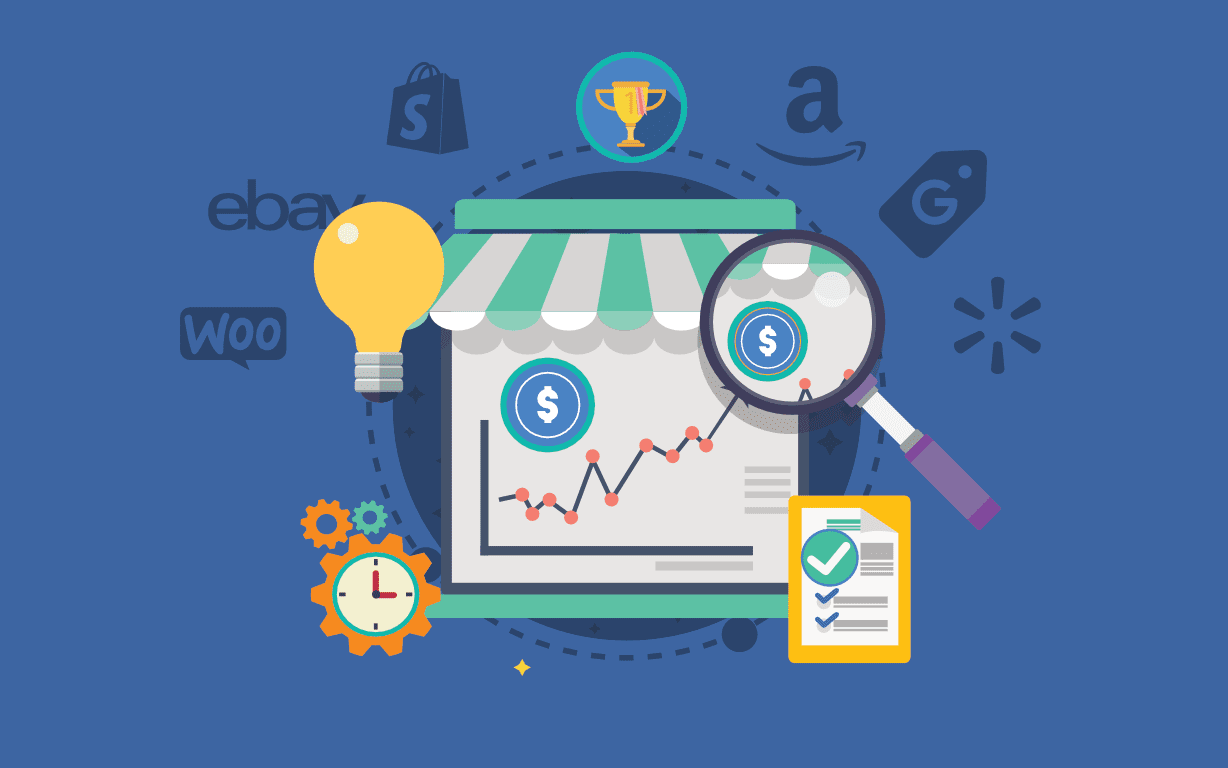
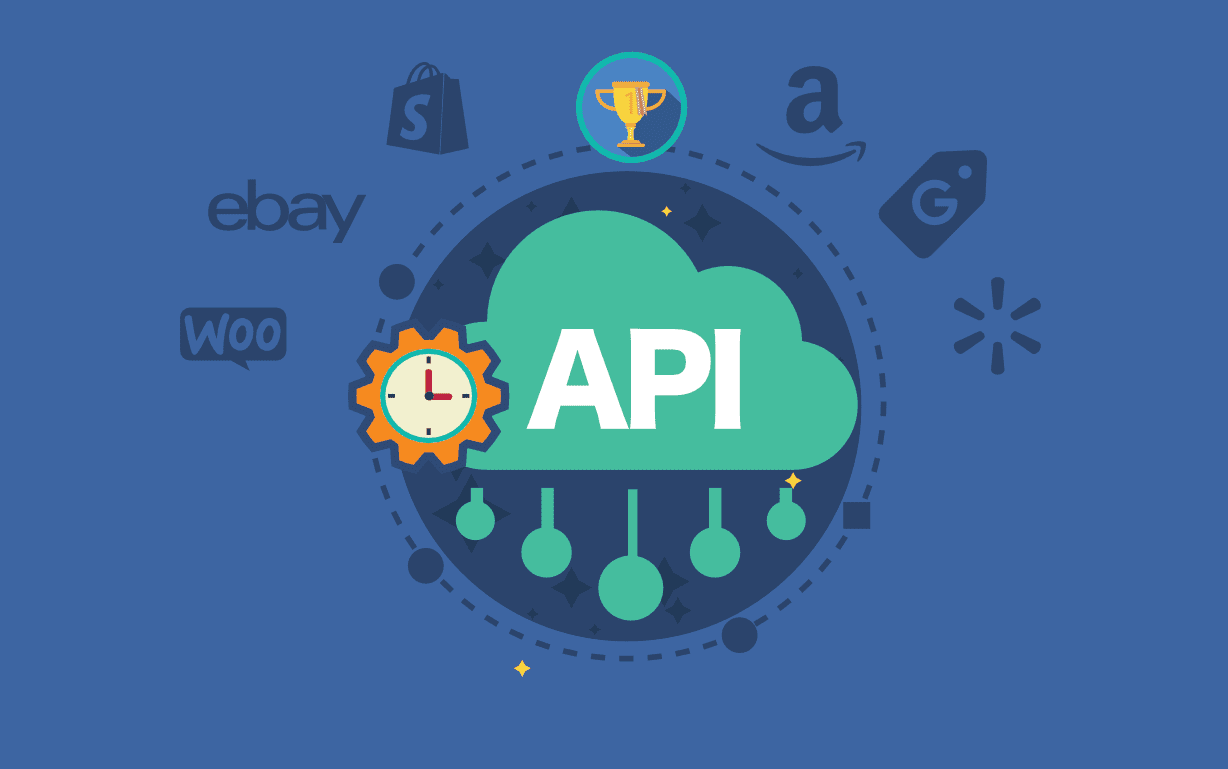




![Best Rated E-Commerce Automation Platforms and Tools [Updated]](https://sellerchamp.com/wp-content/uploads/2025/06/image4-1-600x315.png)



